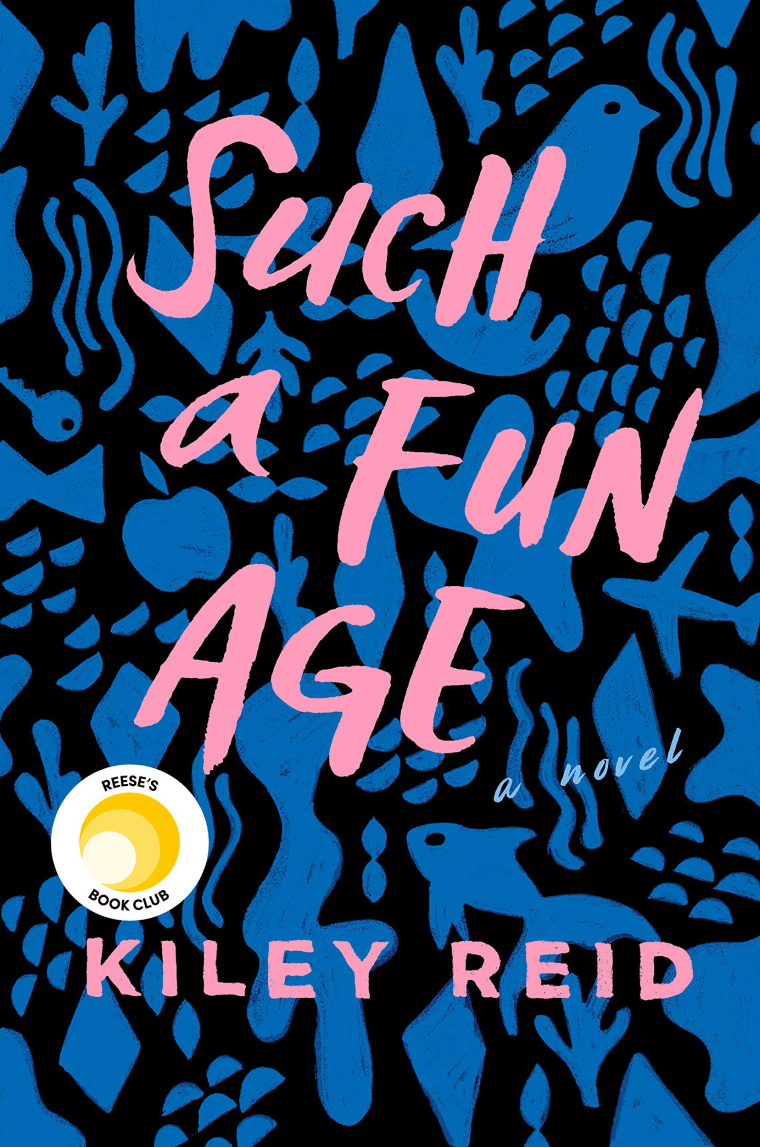When Kiley Reid failed to get into any of the nine schools she applied to for her master of fine arts degree four years ago, she moved to Arkansas and began writing about her experiences babysitting in New York throughout her 20s before reapplying.
The next time, she was accepted to the prestigious Iowa’s Writers’ Workshop at the University of Iowa. There she finished her debut novel, “Such a Fun Age,” a book that despite only being released Dec. 31 is topping must-read lists and has been acquired by Emmy winner Lena Waithe’s Hillman Grad Productions.
“Adapting the novel into a movie was not in my mind while creating it, but I do remember when I took 240 pages of the novel into the workshop and a lot of my classmates came back and said, ‘Okay, so I’ve cast the movie. Do you want to know who I chose?’” Reid told NBC News. “So I thought that the novel did have a cinematic quality, but my goal was just to have a really solid book. Bulletproof on a page level.”
Reid’s fans would say she has more than achieved this goal and that the accolades are tangential to her writing. And yet, the litany of honors “Such a Fun Age” has already received cannot be discounted; instead, they are made all the more extraordinary by the fact that she is a debut novelist.
“Such a Fun Age” is both Marie Claire and Well-Read Black Girl’s January book club pick, and Reese Witherspoon, who can sell out books with one Instagram post, announced Wednesday that it’s also this month’s Reese’s Book Club read.
“'Such a Fun Age’ is such a fresh voice. It’s a unique, honest portrayal of what it’s like to be a black woman in America,” Waithe said. “Kiley Reid has delivered a poignant novel that could not be more necessary.”
Reid’s acclaimed novel focuses on Emira, a 25-year-old black woman navigating postgraduate life in Philadelphia as a babysitter for a wealthy white family — a job that affords her a paltry salary and no vacation or health insurance. Reid decided to set the story in Philadelphia, a city she visited for the first time in 2015 for a Beyoncé concert, in part because the city is leading the way in setting standards for domestic workers.

Most of the estimated 16,000 domestic workers in Philadelphia are women of color — many of whom are also undocumented and vulnerable to exploitative practices, wage theft and abuse. According to a 2016 study, domestic workers in Philadelphia have an average income of $10,000.
Emira earns more than the average domestic worker because she supplements her income with a second job as a receptionist, but her 26th birthday and the knowledge that she will be kicked off her parents’ health insurance looms.
“I’m super interested in those strange transition periods and those entry-level job points where your life could go one of two directions, especially for people who aren’t necessarily poor but who are very broke to a point where money dictates how they live every minute,” Reid said. “In writing the novel, I also became fascinated how wealth can manifest in different ways, not just in owning capital, but having networks that can position you for certain opportunities.”
Though Emira struggles with the precariousness of her livelihood, she finds solace in taking care of Briar Chamberlain, a rambunctious and curious toddler. One night, Briar’s mother, Alix, calls up Emira asking her if she can take him to the grocery store, insisting that she’ll pay Emira double as the sitter was not scheduled to work that night. Yet an altercation in the grocery store, involving a security guard who accuses Emira of kidnapping Briar and a well-intentioned bystander who records the interaction, engenders a series of events in the novel.
By blurring the lines between hero and villain, victim and tormenter, Reid sets out to examine who’s complicit in racism and the insidious, subtler forms by which prejudice sometimes exerts itself in "Such a Fun Age."
“The characters that I enjoy the most, the author has set me up to not know how to feel about them,” Reid said. “I think it’s a bit romantic to believe that racist and homophobic individuals are those ways all the time."
For this reason, one of Reid’s writing philosophies is to “give each character a win” — a moment when they are redeemable.
"It's a disservice to all of my characters if I don’t show them at their very best because I think showing those sides makes their less-than-perfect moments, even more real," Reid said.

